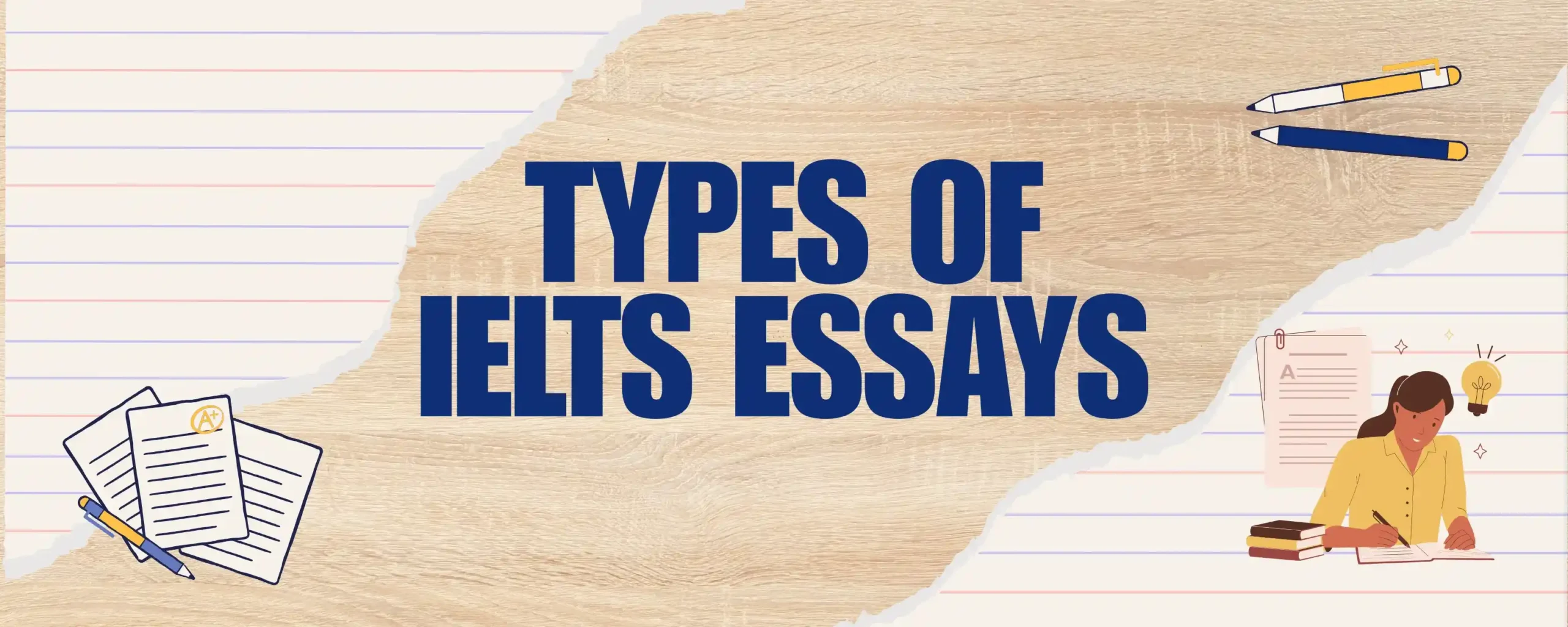The United States has long been a premier destination for students worldwide, offering unmatched academic excellence, cultural diversity, and promising career prospects. From Ivy League universities to state-of-the-art research facilities, the U.S. continues to draw aspiring scholars eager to experience the “American dream.”
However, for non-native English speakers aiming to study in the U.S., proving English language proficiency is essential, and the IELTS Academic exam is a widely accepted standard globally. In the USA, the IELTS score for USA universities is recognized by way of more than 3400 establishments, such as prestigious Ivy League universities and numerous programs including UG, masters, PhD, MBA, etc., serving as credible evidence of readiness to thrive in academic settings
To make your study-abroad dream in the USA a reality, you must be aware of the IELTS band requirements for the USA. The IELTS band requirements can differ depending on the university and the chosen course of study. Therefore, knowing the minimum IELTS band requirement is essential. This guide provides a comprehensive look at the IELTS band requirements for the USA in 2024, helping aspiring students to understand and achieve their target scores. For those aiming to meet or exceed these requirements, comprehensive IELTS courses offer tailored to help students reach their target scores. In this case Choosing the Right IELTS Online Course can make all the difference.
IELTS Band Requirement for USA
In the United States, IELTS score requirements vary widely depending on the university, program, and degree level. Generally, top institutions require a minimum overall IELTS band score of 6.5 to 7.0 for most undergraduate and postgraduate programs. The IELTS Academic test is generally preferred to meet these academic proficiency requirements.
IELTS Band Requirement by Study Level:
- Undergraduate programs: Minimum 6.0
- Postgraduate programs: Minimum 6.5
Some universities also set specific band requirements for individual IELTS sections—Reading, Listening, Writing, and Speaking—to ensure students have balanced skills in all areas of communication. While an overall score of 6.0 to 6.5 is adequate for many U.S. institutions, top universities often prefer applicants with higher scores to handle the academic rigor and communication demands of their programs.
Here are some key reasons why higher IELTS scores are sometimes required:
- Language Intensity: Certain programs, like literature, language studies, and journalism, demand strong English proficiency, as they rely heavily on complex communication skills. A higher IELTS score for these fields ensures effective comprehension and engagement.
- Academic Requirement: Courses in fields like engineering, medicine, and law often have advanced terminology and technical content. For this reason, a higher IELTS score is preferred to ensure students can excel in such academically demanding programs.
- Professional Licensing: Fields like nursing, teaching, and accounting require licensing or certification. These career paths demand precise language skills, making a higher IELTS score beneficial for future professional requirements.
- University Standards: Some institutions set specific language proficiency requirements to maintain high academic standards and ensure students can manage their programs’ intellectual demands.
- Admission Competition: Popular programs with limited seats may have higher IELTS requirements due to the competition. Higher scores can give applicants a significant advantage during the selection process, enhancing their chances of admission.
Achieving a high IELTS score can provide an edge when applying to top universities in the U.S., especially in competitive programs where language proficiency plays a central role.
IELTS Score for USA: Top 10 Universities
With the average minimum IELTS band score between 6.0 to 6.5 in the United States, potential students can enter most universities across the country. However, students who have the desire to enter some of the world’s top universities need to aim for a band score that is slightly above average. Here is the list of Top 10 Universities in the USA with global ranking and their IELTS band requirements.
| University | Times Higher Education (THE) World University Rankings | QS World University Rankings in 2024 | IELTS Requirement for Undergraduate | IELTS Requirement for Postgraduate |
| Harvard University | 4 | 4 | 7.0+ | 7.0+ |
| Stanford University | 2 | 5 | 7.0 | 7.5+ |
| Massachusetts Institute of Technology (MIT) | 3 | 1 | 7.0 | 7.0+ |
| California Institute of Technology (Caltech) | 7 | 15 | 7.0 | 7.0 |
| University of Chicago | 13 | 11 | 7.0+ | 7.5 |
| Columbia University | 17 | 23 | 7.0 | 7.5 |
| Princeton University | 6 | 17 | 8.0+ | 8.0+ |
| University of Pennsylvania | 16 | 12 | 7.0 | 7.5 |
| Yale University | 10 | 16 | 7.0+ | 7.5+ |
| University of California, Berkeley | 9 | 10 | 6.5+ | 7.0+ |
List of Universities with Minimum IELTS Score for USA
Here is a comprehensive list of popular universities in the U.S. that accept IELTS scores for admissions, along with their minimum band requirements. Keep in mind that requirements can differ for undergraduate and postgraduate programs. This will help you to know the ideal targeted score you need to crack in IELTS to secure admission in the top universities.
| University | Minimum IELTS (Undergraduate) | Minimum IELTS (Postgraduate) |
| Johns Hopkins University | 7.0 | 7.0 |
| Duke University | 7.0 | 7.0 |
| Cornell University | 7.0 | 7.5 |
| University of Michigan-Ann Arbor | 7.0 | 6.5 |
| Carnegie Mellon University | 7.5 | 7.5 |
| Northwestern University | 7.5 | 7.5 |
| University of California, Los Angeles | 7.0 | 7.0 |
| New York University | 7.5 | 7.5 |
| University of Washington | 6.0 | 6.5 |
| University of California, San Diego | 7.0 | 7.0 |
| Georgia Institute of Technology | Contact institution | Contact institution |
| University of Texas at Austin | 6.5 | 6.5 |
| Dakota State University | 6.0 | 6.0 |
| University of Wisconsin-Madison | 6.5 | 7.0 |
| University of Illinois at Urbana-Champaign | 6.5 | 6.5 |
| University of California, Santa Barbara | 7 | 7 |
| Brown University | 8.0 | 7.0 |
| Washington University in St Louis | 7.0 | 7.0 |
| University of North Carolina at Chapel Hill | 7.0 | 7.0 |
| University of California, Davis | 7.0 | 7.0 |
| Purdue University | 6.5 | 6.5 |
| University of Southern California | 6.5 | 6.5 |
| University of Minnesota | 6.5 | 6.5 |
| Ohio State University | 6.5 | 7.0 |
| Boston University | 7.0 | 7.0 |
| Pennsylvania State University | 6.5 | 6.5 |
| University of Maryland, College Park | 7.0 | 7.0 |
| Emory University | Contact institution | Contact institution |
| Rice University | 7.0 | 7.0 |
| Michigan State University | 6.5 | 6.5 |
| University of California, Irvine | 7.0 | 7.0 |
| Dartmouth College | 7.0 | 7.0 |
| University of Virginia | 7.0 | 7.0 |
| Georgetown University | 7.0 | 7.0 |
| University of Pittsburgh | 6.5 | 6.5 |
| University of Colorado Boulder | Contact institution | Contact institution |
| Vanderbilt University | 6.5 | 7.0 |
| Arizona State University | 6.0 | 7.0 |
| Case Western Reserve University | 6.5 | 6.5 |
| Indiana University | 6.5 | 6.5 |
| Tufts University | 7.0 | 7.0 |
| University of Florida | 6.0 | 6.5 |
| Golden Gate University | 6.5 | 7.0 |
| University of Rochester | 7.0 | Contact institution |
| University of California, Santa Cruz | 7.0 | 7.0 |
| Texas A&M University | 6.0 | 6.0 |
| University of Notre Dame | 7.0 | 7.0 |
| Rutgers, the state University of New Jersey | 6.0 | 6.0 |
| Westcliff University | 6.5 | 7.0 |
| Clark University | 6.5 | 7.0 |
Conclusion
With a clear understanding of the minimum IELTS requirements for U.S. universities, now is the time to start preparing for the IELTS test. Achieving your target score requires strategy, dedication, and expert guidance, especially since each university and program may have unique expectations. Top-ranked institutions often set higher IELTS requirements, especially for competitive fields, making focused preparation essential.
Through personalized feedback, instructors can highlight your strengths and areas needing improvement, ensuring well-rounded readiness for each section of the exam. You also have the option to prepare for the IELTS at home with online courses if attending in-person classes isn’t feasible or desirable. Whether you choose online or in-person classes, ensure that your course provides a structured approach and expert guidance to help you achieve your IELTS goals.
Frequently Asked Questions
Q: Does the USA Accept a 5.5 IELTS Score?
Ans: Most U.S. universities typically require an IELTS score of at least 6.0 or 6.5, especially for undergraduate and postgraduate programs. While some community colleges and institutions may accept an overall band score of 5.5, options are limited, and program choices may be restricted. It’s always best to check the specific requirements of each institution, as higher-ranked universities and more competitive programs generally expect a score of 6.5 or above.
Q: What is the Minimum IELTS Score Required for the USA?
Ans: The minimum IELTS score required for studying in the USA varies by institution and program. Generally, an overall score of 6.0 to 6.5 is considered the standard for many universities. However, more prestigious universities may require higher scores, often 7.0 or above, especially for fields like law, medicine, and journalism. Additionally, some institutions may set minimum band scores for individual sections like Reading, Writing, Listening, and Speaking.
Q: Is IELTS Required for a USA Visa?
Ans: For a U.S. student visa (F-1 visa), you need to demonstrate sufficient English language proficiency set by U.S. immigration authorities. However, most universities and colleges require proof of English language proficiency as part of their admission criteria, and IELTS is widely accepted. Meeting the university’s IELTS requirement is typically sufficient to meet the language proficiency component of the visa application.





